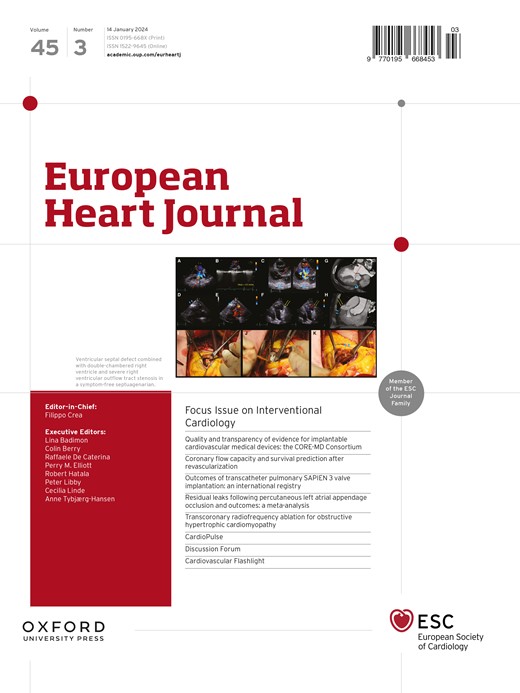Infective endocarditis: it takes a team
IF 37.6
1区 医学
Q1 CARDIAC & CARDIOVASCULAR SYSTEMS
引用次数: 0
Abstract
Infective endocarditis (IE) is a relatively rare but life-threatening systemic infection, which remains associated with high morbidity and mortality. The epidemiology of IE has shifted to involve an increasing numbers of older patients with both cardiovascular and other types of prosthetic devices, multiple comorbid conditions often requiring invasive procedures, increasingly virulent pathogens, in particular Staphylococcus aureus, or that can harbour anti-microbial resistance, and an escalation of injection drug use in many areas of the world. In parallel, advancements in diagnostic and therapeutic options have led to complex strategies in patients’ management. Despite these epidemiologic shifts, clinical trials have been rare and most of the evidence guiding IE management derives from expert consensus or analysis of large registries. Because of this, a multi-disciplinary IE team-based approach has been recommended as the standard of care. The aim of this review is to explore the rationale for a multi-disciplinary team-based approach to the management of IE. This approach has proved to be potentially beneficial based on multiple investigations that have evaluated patient outcomes. In addition, implementation strategies, feasibility and options of the team approach have also been highlighted.求助全文
约1分钟内获得全文
求助全文
来源期刊

European Heart Journal
医学-心血管系统
CiteScore
39.30
自引率
6.90%
发文量
3942
审稿时长
1 months
期刊介绍:
The European Heart Journal is a renowned international journal that focuses on cardiovascular medicine. It is published weekly and is the official journal of the European Society of Cardiology. This peer-reviewed journal is committed to publishing high-quality clinical and scientific material pertaining to all aspects of cardiovascular medicine. It covers a diverse range of topics including research findings, technical evaluations, and reviews. Moreover, the journal serves as a platform for the exchange of information and discussions on various aspects of cardiovascular medicine, including educational matters.
In addition to original papers on cardiovascular medicine and surgery, the European Heart Journal also presents reviews, clinical perspectives, ESC Guidelines, and editorial articles that highlight recent advancements in cardiology. Additionally, the journal actively encourages readers to share their thoughts and opinions through correspondence.
 求助内容:
求助内容: 应助结果提醒方式:
应助结果提醒方式:


